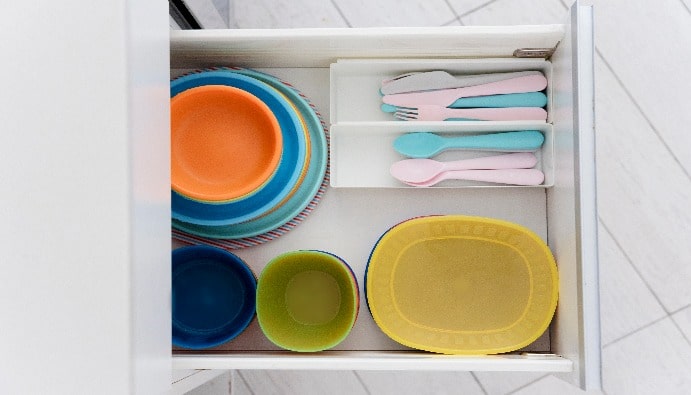
BLOG
KATEGORİDEKİ DİĞER YAZILAR

Antibacterial plastic products are used in healthcare, food, cosmetics and other industries, particularly where hygiene is critical. The effectiveness of these products is based on their capacity to inhibit or destroy bacterial growth on their surfaces. The performance of these products in terms of hygiene and safety is evaluated by test methods in accordance with international standards.
Plastic is used in many kitchen products, especially disposable plates, spoons, forks, packaging and toys. Plastic materials are easy to use and easy to clean. However, they are a suitable environment for bacterial growth in reuse.
A general opinion in the society is that plastic packaging materials, especially in the food sector, are not hygienic and reliable. For this reason, glass and metal materials are more preferred. This situation has led to some studies to provide antibacterial properties on plastic materials.
It is planned to create a healthier food chain by adding antibacterial additives to plastic raw materials used especially in food packaging processes.
In order to provide antibacterial properties in plastic products, special additives are added to the raw material. The function of the antibacterial additives used is to prevent the growth of bacteria, mold and pathogenic microorganisms by 99%. Antibacterial additives are used in many plastic and polymer products such as PMMA, TPU, PVC, PE HIPS, ABS and silicone.
In addition, environmental pollution increases with the disposable use of plastic products. Recently, many studies have been carried out to reduce the use of plastics. Antibacterial additives are one of the processes that will reduce environmental pollution by enabling plastic products to be reused.
Antibacterial plastics gain resistance to bacteria thanks to active substances added to their content. These substances can be:
Nanolab Laboratories Group continues to provide services within the scope of Biocidal Product Analysis. We also provide services in Virucidal Efficacy Tests.
Contact us for more information.
You can follow us on LinkedIn for up-to-date news and posts about our services.
Follow our Instagram account to be informed about our latest blog posts.